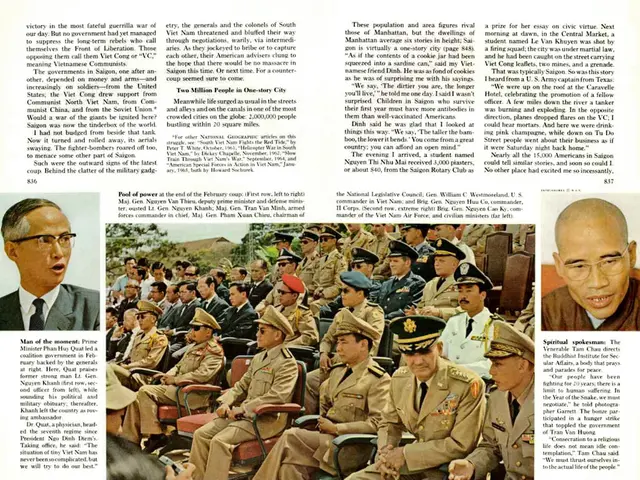A Comprehensive Overview of Performing an Exit Interview: Insights and Strategies
Benefiting from Years of Management Experience, the Art of Exit Interviews
Throughout my tenure as a manager, I have found that conducting productive and insightful exit interviews is an essential skills that benefits both organizations and departing employees. By eliciting open and constructive dialogue, these interviews uncover valuable insights into the reasons behind employee departures and suggest potential areas for growth within an organization.
Understanding the Purpose and Importance of Exit Interviews
Exit interviews serve a dual purpose, offering an opportunity for departing employees to share their experiences and for organizations to collect valuable feedback. This information can provide organizations with insights into employee turnover patterns, identify concerns related to the work environment, and inform decisions about improvements.
The Benefits of Exit Interviews
Conducting well-prepared exit interviews can yield diverse benefits, including:
- Gaining insights into the root causes of employee turnover.
- Identifying trends in employee feedback to make informed decisions and guide improvements.
- Evaluating the employee experience and identifying opportunities to enhance the work environment.
- Resolving issues raised by departing employees and preventing them from affecting current employees.
- Assessing management practices, organizational culture, and company processes.
- Determining areas for training and development to optimize employee satisfaction and performance.
- Improving recruitment and onboarding processes.
- Increasing employee retention by addressing factors contributing to turnover.
- Enhancing employer branding and reputation by demonstrating a commitment to listening and learning from departing employees.
- Using exit interview insights to create targeted strategies for talent management and succession planning.
Are Departing Employees Honest in Exit Interviews?
While concerns about the credibility of exit interview feedback may arise, research suggests that most employees provide honest and detailed responses. Feedback is valuable as it gives organizations an opportunity to improve themselves with the help of constructive input from departing employees.
Moreover, exit interviews enable departing employees to voice their opinions and be heard, even if they were unable to express these views during their employment. By approaching interviews with professionalism, calmness, and empathy, managers can make employees feel comfortable sharing their concerns and suggestions.
Designing Effective Exit Interview Questions
Developing thoughtful and thought-provoking questions is crucial for encouraging honest and candid responses. Some tips for structuring exit interview questions include:
- Focusing on open-ended and neutral questions that invite elaboration and promote reflection.
- Aiming for comprehensiveness, covering topics like job satisfaction, company culture, leadership, team dynamics, growth opportunities, and work-life balance.
- Emphasizing confidentiality, ensuring departing employees understand who will have access to their feedback and what it will be used for.
- Guaranteeing anonymity if desired.
- Scheduling interviews at appropriate times in the employee’s final week and using flexible formats such as in-person, video, or written responses.
By taking these factors into consideration, managers can elicit thorough and valuable feedback from departing employees, ultimately shaping the organization for the better.
Analysing and Utilizing Insights from Exit Interviews
Gathering data from exit interviews is just the beginning. To maximize the impact of the insights gained, organizations should analyze the data, identify trends, and implement appropriate changes. This information can help address issues causing employee attrition, improve overall employee satisfaction, and boost organizational success.
In Conclusion
Exit interviews are an essential tool for gaining insights into the employee experience and identifying areas for improvement within organizations. By designing thoughtful questions, creating supportive environments, and effectively analyzing feedback, organizations can improve employee retention, enhance the work environment, and grow their overall success.
Background Information:
- Empower employees: Encourage departing employees to share their thoughts and leverage their experience to guide organizational improvements.[1][2]
- Listen actively: Fully engage in the conversation, ask probing questions, and show care for the departing employee's experiences.[1]
- Take action: Use the insights gained from exit interviews to drive positive change within the organization.[1]
- Through the conduct of insightful exit interviews, organizations can foster areas for professional development by identifying concerns related to leadership, work environment, and career advancement within the company, thereby increasing employee retention.
- By actively listening to departing employees during exit interviews, an organization can ensure education and self-development by gaining insights into the employee experience, using these insights to make informed decisions, and taking action to improve the company processes, ultimately enhancing its employer branding and reputation.








